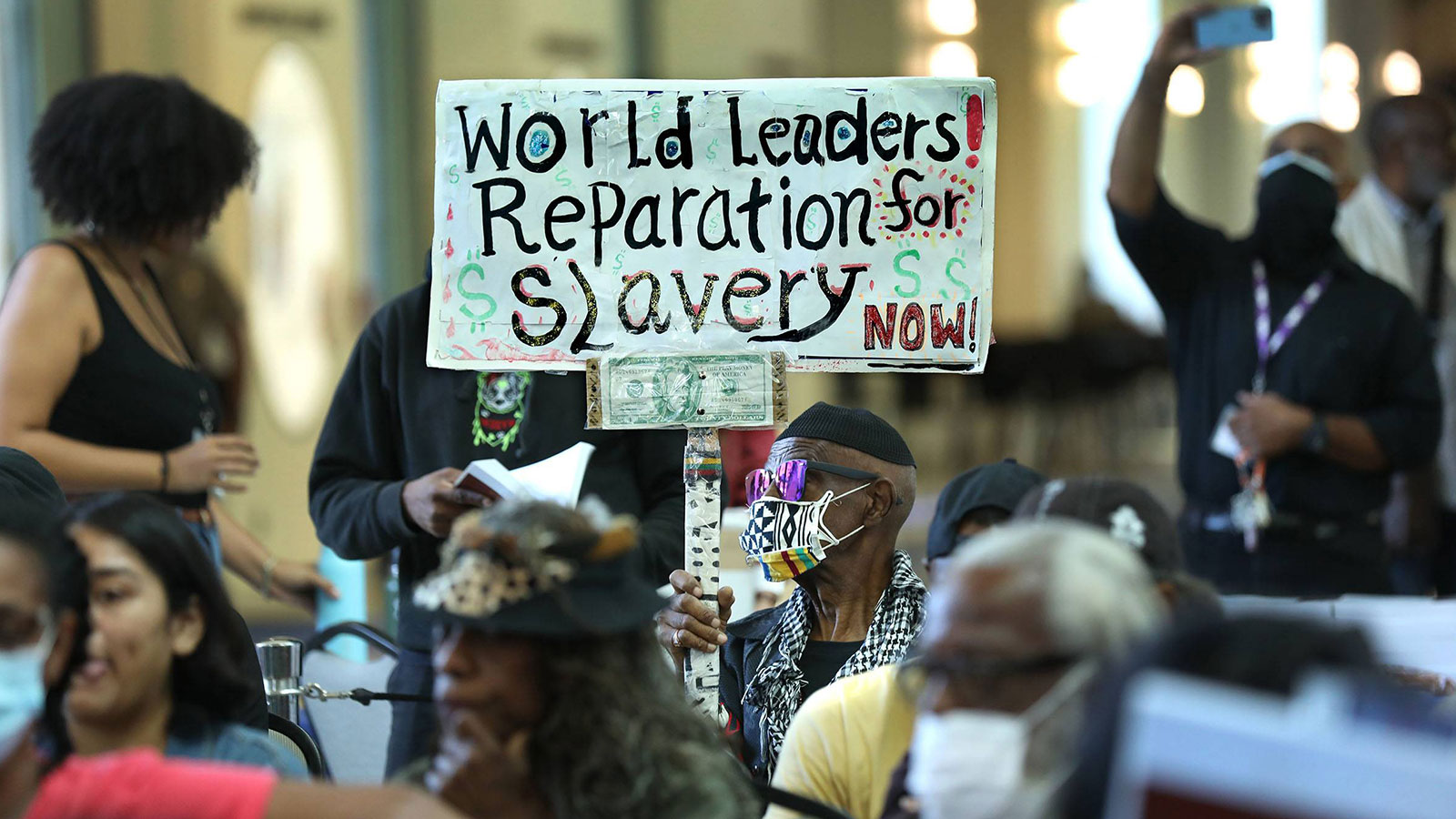In the two years since its formation, the task force has yet to release any suggestions on policy, despite writing a 500 page report.
After almost two years, the California reparations task force has yet to make major judgments that would shape its final report on how the state should apologize and compensate Black citizens for slavery and discrimination.
According to CNN, one of the committee’s nine members was absent, delaying a weekend decision on eligibility rules for reparations and other remedies.
Following two hours of intensive debate, the task panel decided unanimously Saturday in support of an agency that would give some services to descendants of Black enslaved people while overseeing other groups.
In 2020, lawmakers established the task force to examine how slavery’s legacy affected Black Americans in education, criminal justice, and other areas. The act orders the task force to explore reparations ideas “with a special regard for” descendants of enslaved Black people in California, not to create a federal scheme.
The task force’s first-of-its-kind effort has garnered national notice. But, several warned at the group’s last two-day Sacramento gathering that Black Californians are not fully informed about its efforts.
One homeowner suggested making the task force’s unprecedented interim 500-page report, issued last year, available in libraries and schools, a topic the committee addressed Saturday. Others claimed the task committee and its media staff can’t only promote its work.
“This room should be full with reporters, and it’s not because Black people are a pariah,” Los Angeles lawyer Cheryce Cryer said Saturday. “We’re last.”
The group’s two-day meeting in Sacramento, the state’s capital, precedes its July 1 report deadline for lawmakers. The paper will be a turning point in restitution efforts nationwide. It is supported by many African Americans and Asian Americans who pushed for federal reimbursements to families interned during World War II.
Sacramento resident Tariq Alami, who has followed the task force’s activities from its inception, said the government should have legislated reparations for African People long ago.
“It doesn’t take a genius to realize that there are inequalities in society as a result of what we have faced as Black people,” Alami added.
Friday and Saturday, dozens of supporters and citizens from throughout the state spoke outside the California Environmental Protection Agency office, describing family histories of land seizure and calling for federal politicians to follow California’s lead.
Assemblymember Reggie Jones-Sawyer and state Sen. Steven Bradford, both Democrats from Los Angeles County, will decide the task force’s recommendations when its final report is released. Legislators would also determine reparations funds.
The task team has met several times to explore time periods for reparations for five damages economists estimated to quantify Black Californian discrimination.
Friday, those economists said they needed data on the discrepancy between what the government compensated Black people for property it confiscated and its real value to quantify damages.
The task group offered the following time ranges for the five damages, starting when the state was created or when discriminatory policies were implemented: 1933–1977 for housing discrimination and homelessness, 1970–2020 for over-policing and mass imprisonment, 1850–2020 for unfair property takings, 1900–2020 for health damages, and 1850–2020 for undervaluing Black-owned companies.
Given that Black Californians account for a third of homelessness, task force member Monica Montgomery Steppe expressed reservations Friday about designating 1977 the cutoff year for housing discrimination and homelessness. The federal Community Reinvestment Act, which encourages lending in low- and middle-income regions, suggested that year.
The economists used that year to support their estimations of government-sponsored redlining when majority-Black districts were labeled “dangerous.”
Steppe said there are other reasons people sleep on the street.
Last year, the task panel restricted reparations to descendants of 19th-century African Americans. Members have not yet decided on whether to limit compensation to California residents or include persons who resided in the state and expected to stay but were evacuated.
Black American reparations have had mixed effects elsewhere. Since 1989, Congress has failed to vote on a reparations measure.
Source: BET News


